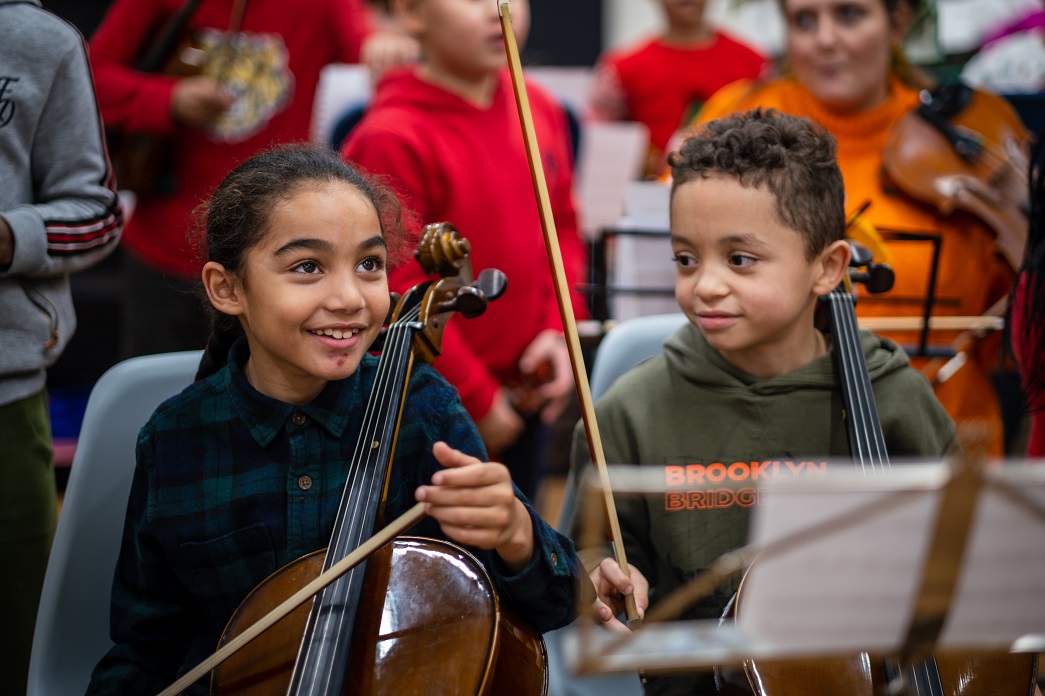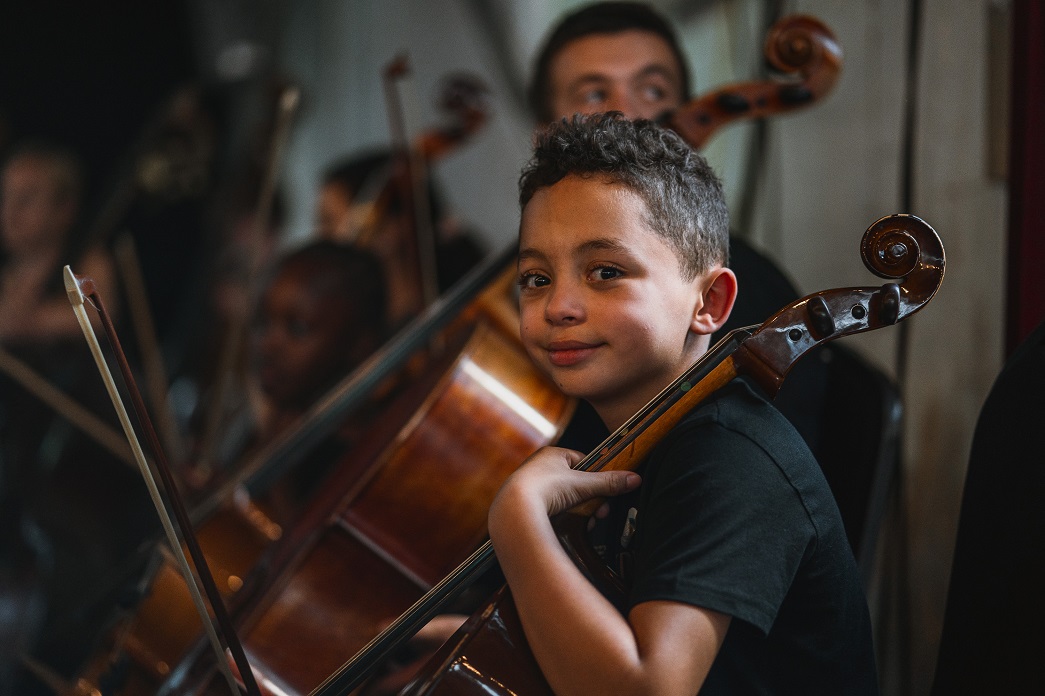The Day the Music Dies? Why time is running out to tackle the decline in UK music education
Dr Jo Yee Cheung, pianist and Chief Executive/Founder of Olympias Music Foundation
A moment of optimism first. Around 20 months ago, the UK government published the second iteration of its National Plan for Music Education (NPME) with the tagline ‘the power of music to change lives’. It placed renewed emphasis on providing all children with the chance to ‘play, perform and create music’ because it helps children to ‘express themselves, explore their creativity, to work hard at something, persevere and shine’. Schools, music hubs, and educators were urged to strive to create an ‘elite of musicians… akin to the elites we celebrate in sport’. Why? ‘There are children in our country who still do not realise their full musical potential,’ the report observed, ‘many of whom could achieve incredible things if given a chance.’

Credit: Karen Rangeley
Fast forward to today, though, and the picture couldn’t be less rosy. Despite the bold ambitions of the report, recent statistics on music education make for sobering reading. Only 5,000 students in England took A level music in 2023, down 45 percent since 2010, and the Independent Society of Musicians identified a 36 percent drop in GCSE level pupil numbers. Maybe the cause, maybe the effect, but it can’t be a coincidence that secondary school music teacher numbers also fell by over 1,000 in the same period. Figures from specialist music colleges suggest they could do more to help, too; for example, less than 44 percent of new undergraduates at one leading conservatoire attended state schools compared with, say, 63 percent at Cambridge University. Alarmingly, less than one percent of performers in UK orchestras are from global majority backgrounds. The House of Lords has branded the inaccessibility of specialist education for young people from low-income backgrounds a ‘disgrace’ and a ‘disaster’, while a bleak report by Arts Council England (ACE) on inclusivity in classical music concluded that without sustained financial support for music lessons, a child from a low-income background has ‘virtually no chance of becoming a professional musician’.
Music organisations and charities across the country are passionately committed to widening access to musical opportunities for young people from all backgrounds, and they’re going to heroic efforts to make that happen. Initiatives such as In Harmony (which works with partner schools in Liverpool, Leeds, Nottingham, Telford, Stoke-on-Trent, Newcastle, and Lambeth) and Music In Secondary Schools (now in 29 UK schools) have embedded group music lessons within the school curriculum for all pupils. Big Noise (run by Sistema Scotland) is focusing on early years’ intervention and long-term delivery in some of Scotland’s most challenged communities. Music For the Many, in Todmorden, is in schools with its CBSO initiative (Complete Beginners Symphony Orchestra) and Festival of Nasheeds, a celebration of the Islamic tradition of devotional songs performed by children in a range of languages and styles. And then there’s the herculean work of the Music Education Hubs responsible for overseeing the delivery of the NPME and music education to hundreds of thousands of young people across the UK, amidst increasingly aggressive cuts to music funding and teaching staff.
In Richard Powers’ book, The Overstory (which explores the intertwined relationships of different characters’ life experiences with trees), the protagonist comments that the best time to plant a tree was 20 years ago – but, failing that, the next best time is now. I planted my first proverbial tree in Manchester in 2015 when, as a student at the Royal Northern College of Music (RNCM), I launched Olympias Music Foundation (OMF) to bring free and sustained music tuition to young people aged six to 16 from diverse and low-income backgrounds. We now provide weekly one-to-one tuition to 125 children, and we’ve set our sights on reaching 250 by 2026. This month, after many years of collaboration, I’m proud to have announced an official partnership with the RNCM that will help to make that goal a possibility. It will mean long-term support for our work with children and their families, but also create more professional development opportunities for RNCM students – and for some, maybe even a future career with us in music and the charitable sectors after graduation.

Credit: Tom Arber
OMF believes music makes a huge difference to the health and wealth of the nation. We provide an instrument for every child who studies with us and one-to-one lessons for as many years as they wish, alongside weekly choir, orchestra, and composing clubs and termly performance opportunities. We’re based in Longsight, an area in the top one percent of urban deprivation in Manchester, where 25 percent of births are to single mothers, 34 percent of children are from low-income families and 48.9 percent of households are at risk of acute health problems. Currently, 93 percent of the children living there are from global majority backgrounds, with 30 different countries represented. Families in our programme acutely understand the value of what we bring to the community, and it’s humbling to talk to parents who describe the experience of working with us as ‘a dream come true’ and a ‘valuable gift’ for their children. I could not agree more, but it is also just the beginning of a forest that no one cannot plant alone. A key aim of our charity’s work – alongside raising aspirations and improving confidence and well-being through music – is to diversify future generations of music performers and audiences to better reflect the ethnic and social diversity of the UK, and that will need lots of money and plenty of determination.
Reversing the decline in music education will take sustained, collaborative efforts from a range of different organisations, partners, and funding bodies across the music sector. A diverse and thriving music sector, with a representative workforce and equal opportunities for children and young people to consider meaningful careers in music, was not built overnight. It is the work of decades of trust building with children and families and careful, considered, and consistent offering of opportunities for young people to develop their skills over many years. The best time to reverse the decline in music education and address representation issues in the music sector is not when young people reach adulthood, but during childhood.
If we want to see more female composers, diverse performers on stage, and a wide range of people from all different walks of life attending concerts and enjoying live music, especially classical music, we cannot wait another 20 years. We must start with children’s music education, and we must start now.
11 March 2024

